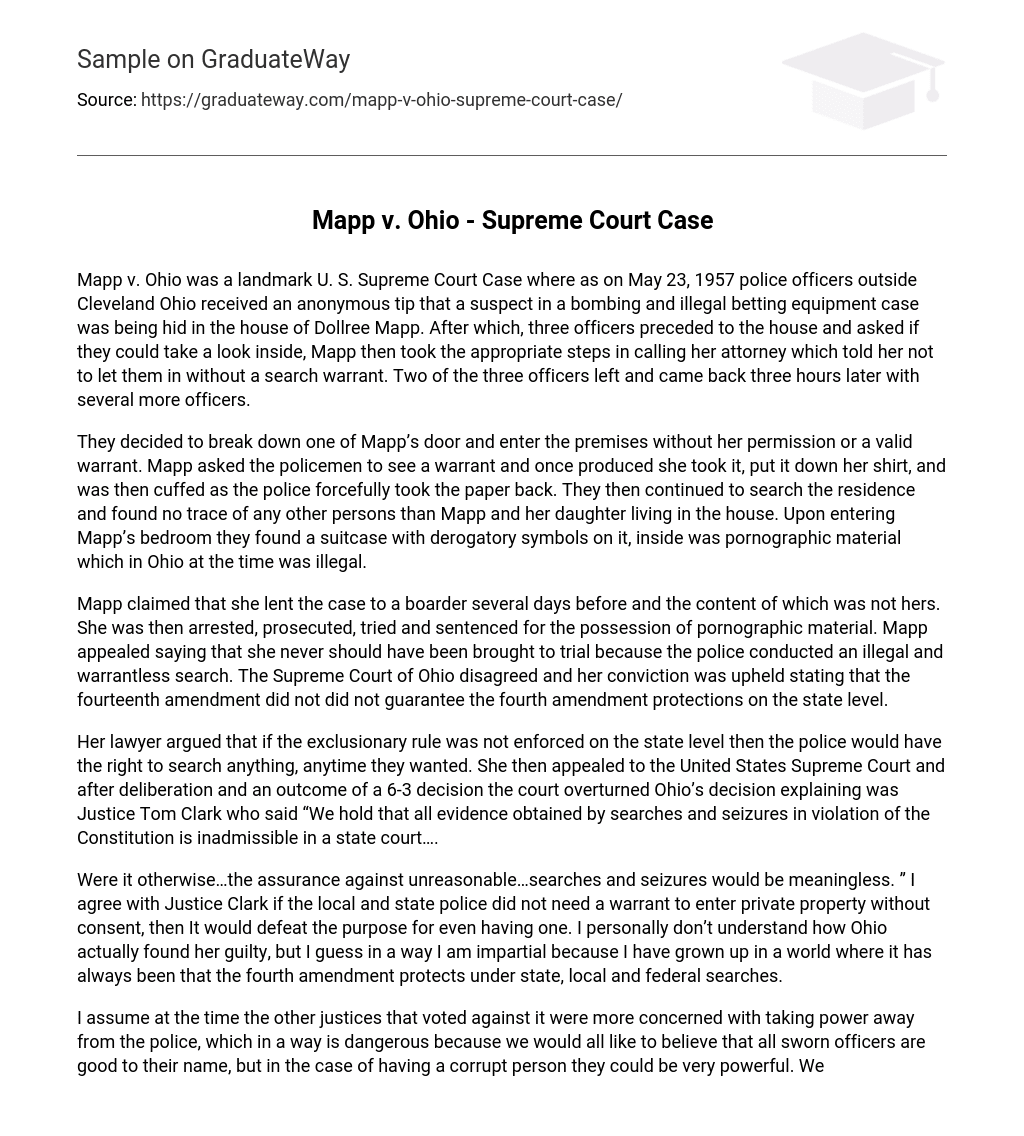Mapp v. Ohio was a landmark U. S. Supreme Court Case where as on May 23, 1957 police officers outside Cleveland Ohio received an anonymous tip that a suspect in a bombing and illegal betting equipment case was being hid in the house of Dollree Mapp. After which, three officers preceded to the house and asked if they could take a look inside, Mapp then took the appropriate steps in calling her attorney which told her not to let them in without a search warrant. Two of the three officers left and came back three hours later with several more officers.
They decided to break down one of Mapp’s door and enter the premises without her permission or a valid warrant. Mapp asked the policemen to see a warrant and once produced she took it, put it down her shirt, and was then cuffed as the police forcefully took the paper back. They then continued to search the residence and found no trace of any other persons than Mapp and her daughter living in the house. Upon entering Mapp’s bedroom they found a suitcase with derogatory symbols on it, inside was pornographic material which in Ohio at the time was illegal.
Mapp claimed that she lent the case to a boarder several days before and the content of which was not hers. She was then arrested, prosecuted, tried and sentenced for the possession of pornographic material. Mapp appealed saying that she never should have been brought to trial because the police conducted an illegal and warrantless search. The Supreme Court of Ohio disagreed and her conviction was upheld stating that the fourteenth amendment did not did not guarantee the fourth amendment protections on the state level.
Her lawyer argued that if the exclusionary rule was not enforced on the state level then the police would have the right to search anything, anytime they wanted. She then appealed to the United States Supreme Court and after deliberation and an outcome of a 6-3 decision the court overturned Ohio’s decision explaining was Justice Tom Clark who said “We hold that all evidence obtained by searches and seizures in violation of the Constitution is inadmissible in a state court….
Were it otherwise…the assurance against unreasonable…searches and seizures would be meaningless. ” I agree with Justice Clark if the local and state police did not need a warrant to enter private property without consent, then It would defeat the purpose for even having one. I personally don’t understand how Ohio actually found her guilty, but I guess in a way I am impartial because I have grown up in a world where it has always been that the fourth amendment protects under state, local and federal searches.
I assume at the time the other justices that voted against it were more concerned with taking power away from the police, which in a way is dangerous because we would all like to believe that all sworn officers are good to their name, but in the case of having a corrupt person they could be very powerful. We all want the police to be able to do their job, but there has to be a limit to their power and this case was a fundamental decision for drawing the line.





